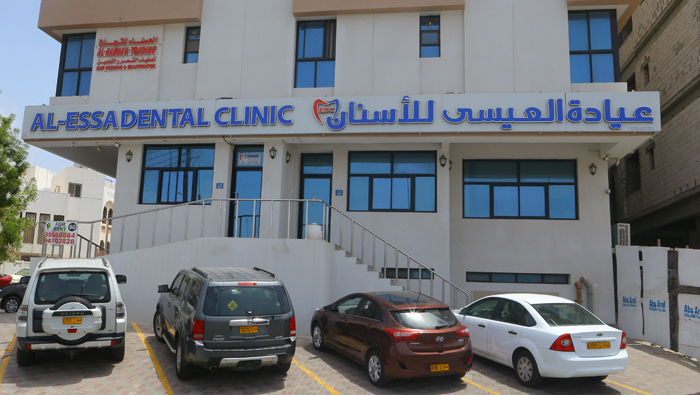
Muscat: Although many pregnant women do make it the entire nine months with no dental discomfort, pregnancy can make some conditions worse – or create new ones.
It’s an old wives’ tale that going to the dentist while pregnant is risky for developing babies and moms-to-be. In fact, just the opposite is true – good dental hygiene is part of a healthy lifestyle for everyone. The mouth is a major gateway to the blood vessels and digestive system. As such, your oral health can be a good indicator of your overall health.
The most common dental problems experienced during pregnancy are as follows:
Pregnancy Gingivitis
Your mouth can be affected by the hormonal changes you will experience during pregnancy. For example, some women develop a condition known as “pregnancy gingivitis,” an inflammation of the gums that can cause swelling and tenderness. Your gums also may bleed a little when you brush or floss. Left untreated, gingivitis can lead to more serious forms of gum disease. Your dentist may recommend more frequent cleanings to prevent this.
Increased risk of tooth decay
Pregnant women may be more prone to cavities for a number of reasons. If you’re eating more carbohydrates than usual, this can cause decay. Morning sickness can increase the amount of acid your mouth is exposed to, which can eat away at the outer covering of your tooth (enamel) leading to an increase in cavities.
Pre-pregnancy dental health
It's very important to keep your teeth and gums clean and healthy while you're pregnant. The best way to prevent or deal with gum problems is to practice good oral hygiene.
Go to the dentist so they can give your teeth a thorough clean and show you how to keep your teeth clean at home.
Here's how you can look after your teeth and gums:
· Clean your teeth carefully twice a day for two minutes with a fluoride toothpaste – ask your dentist to show you a good brushing method to remove plaque.
· Floss once a day to remove small bits of food from between your teeth, which will help to prevent the build-up of plaque.
· Brushing is best with a small-headed toothbrush with soft filaments – make sure it's comfortable to hold.
· Avoid having sugary drinks (such as fizzy drinks or sweet tea) and sugary foods too often – try to keep them to meal times.
· If you're hungry between meals, snack on foods such as vegetables, fresh fruit or plain yoghurt, and avoid sugary or acidic foods.
· Avoid mouthwashes that contain alcohol.
· Stop smoking, as it can make gum disease worse.
· A daily salt rinse (one teaspoon of salt added to a cup of warm water) can help reduce gum inflammation. Swirl the wash around your mouth a few times before spitting it out (do not swallow).
If you have morning sickness (nausea and vomiting), rinse your mouth with plain water after each time you are sick. This will help prevent the acid in your vomit from damaging your teeth. Do not brush your teeth straight away as they will be softened by the acid from your stomach. Wait about an hour before brushing.
Dental treatments during pregnancy
When you go to the dentist, make sure they know you're pregnant.
Dental treatment can be done at any time during pregnancy. However, the best time to perform elective dental treatment during pregnancy is in the second trimester, from weeks 14 through 20.
By this time, the development of the foetal organs is complete and the risk of side effects is lower. In addition, nausea and postural discomfort are often less of an issue during the second trimester.
Keep in mind that if you have oral pain or swelling, you might need immediate treatment. The consequences of not treating an infection during pregnancy outweigh the possible risks of the medications used during dental treatment. Your health care provider will carefully monitor the use of any antibiotics or pain medications.
Local anaesthetics during pregnancy
If you’re pregnant and need a filling, root canal or tooth pulled, one thing you don’t have to worry about is the safety of the numbing medications your dentist may use during the procedure. They are, in fact, safe for both you and your baby.
Dental X-rays during pregnancy
Yes, it's safe to get an X-ray during pregnancy. Although radiation from dental X-rays is extremely low, your dentist or hygienist will cover you with a leaded apron that minimizes exposure to the abdomen. Your dental office will also cover your throat with a leaded collar to protect your thyroid from radiation.
Dental disease can affect a developing baby
Research has found a link between gum disease in pregnant women and premature birth of babies being born with low birth weights. Babies born prematurely may risk a range of health conditions including, cerebral palsy and problems with eyesight and hearing.
Appropriate dental treatment for the expectant mother may reduce the risk of premature birth.
Taking care of your teeth is important at any stage of life, but during pregnancy, oral and dental changes occur that shouldn’t be ignored. By maintaining regular dental visits, you’ll be ready to greet your baby with a beautiful, healthy smile.